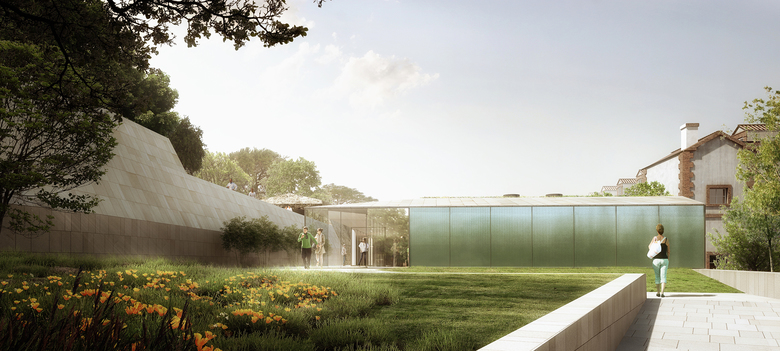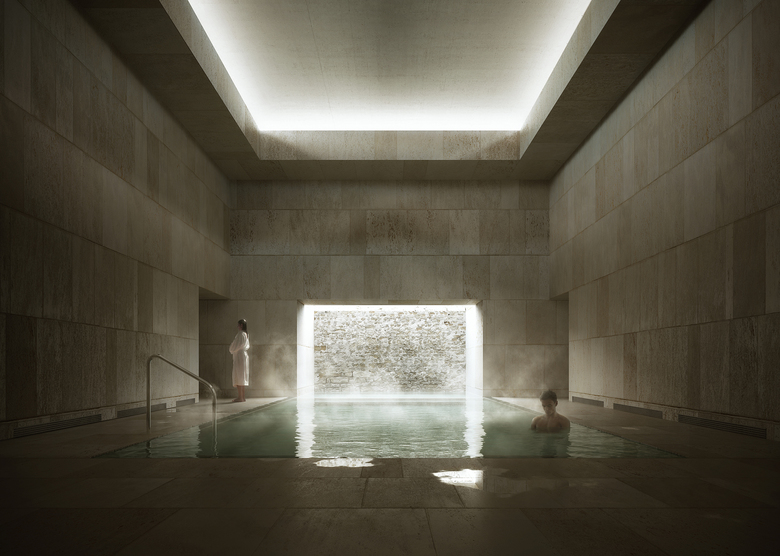Thermoludic Center of Amélie-les-Baines
The Spanish office of Francisco Mangado has won first prize in the international competition to convert the facilities of an old thermal hospital into a spa.
The Spanish office of Francisco Mangado, in collaboration with the French firms V25 architectes, Terrell, SACET, Alayrac, and GAMBA Acoustique, has won first prize in the international competition, organized by the municipality of Amélie-les-Bains-Palalda-Montalba, to convert the facilities of an old thermal hospital into a spa.
The site of the new spa center at Ville de Amélie-Les Bains has extraordinary landscape and historical attributes. Its elevated position in the city, its topography, nestled in the mountain landscape, and the fact that it was previously a thermal bath center, and that this past is ingrained in the memory of the place, were all givens for any new project to build on and highlight.
Especially impressive are the tectonic and material attributes of the complex, mainly in the retaining walls of stone that are part of the landscape, and in the thick solid existing masonry walls. Its value lies not so much in its style or form, but in the actual construction, in those well-built walls that have survived through time.
The starting point of our intervention, hence, is to try to respect the old thermal hospital construction in everything that is of a massive and permanent nature, while reshaping the roofs, reinforcing the areas resulting from that, and creating a new volume. Glazed, lighter in build, this volume rests on and flows through the existing construction, which acts as a plinth, and accommodates new uses as well as the scheme of circulation spaces necessary for the new thermal center to function.
Light over heavy: light volume and glass surfaces, expressions of the contemporary, superposed on dense solid masses inherited from the past.
This linear glazed volume, which somehow stretches through the entire preexisting construction, makes it possible to define limits, closing up the new complex inward and forming a new facade with the old structure that acts as a plinth or base, and a light volume resting on it. In this way, the space between the hotel and the baths is more effectively configured as a garden.
We thus propose an intervention that, while deferring to the past, will not go unnoticed in conceptual and formal terms, and which asserts its contemporariness through an integrated complex where an interpretation of time, of different periods of time, is easily recognizable through the expression of forms and materials.
The other concept implicit in our proposal has to do with ensuring a certain degree of privacy. By taking advantage of the large existing raised courtyard, and creating a new access that connects this space to the raised area where the outdoor water pools are located, the project forms a cloistral arrangement that gives privacy while enhancing the relationship between interior and exterior.







